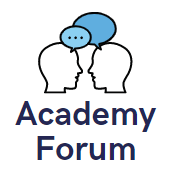
As leader of our PGCTHE programme, I keep an eye out for resources to help staff teach effectively. These include webinars, podcasts, online toolkits, publications and more. Topics include active learning, online/blended teaching, accessibility/inclusion, and effective learning design based on cognitive science. Below I’ve listed items that came to my attention in the past week. In the interest of clarity, our policy is to show the titles and descriptions in the language of delivery.
Online events and webinars
- June, July & August Equity Unbound, MYFest Choose-your-own-learning journey of openness, digital literacies, community building, critical pedagogy, wellbeing & joy, see programme for details
- 3-24/5/2022 Birmingham City University, Decolonising HE Academic Practice – Lectures, Provocations, and Roundtables
- 24/5/2022 Blackboard, Teaching and Learning Conference Europe 2022
- 26/5/2022 Birmingham City University, Basic Principles of Decolonising Academic Practice – Roundtable
- 26/5/2022 Future Teacher Webinars, Collaborative teaching and learning – inside and outside the classroom – Reflected
- 27/5/2022 INRAP, Cross-national Perspectives to Inclusive Assessment in Higher Education
- 1/6/2022 Transforming Assessment, Student perspectives on audio feedback
- 8/6/2022 Digitally Enhanced Education Webinar (including Professor Kathleen M. Quinlan & Dr Edd Pitt (University of Kent): Digitally enhanced assessment and feedback: promising practices from the literature 2016-2022 and more.)
- 8-9/6/2022 QAA Scotland, Enhancement Conference 2022: Resilient Learning Communities – Inclusive, Flexible and Accessible (hybrid online and in person)
- 9/6/2022 CDE and the University of London Institute in Paris, The hybrid experience for the practitioner
- 9/6/2022 Advance HE, Assessment and feedback webinar
- 13, 20, & 29/6/2022 Advance HE, Assessment and feedback summit
- 14-16/6/2022 University of Edinburgh, Learning & Teaching Conference (hybrid in person and online)
- 16-18/6/2022 Centre for Distance Education, University of London, Conference on Research in Distance Education (RIDE) Accelerating innovation (hybrid online and in person at Glasgow)
- 26-27/6/2022 Assessment in Higher Education (AHE) International Conference
- 6-8/7/2022 Playful Learning Conference
- 12-13/7/2022 University of Hull Learning and Teaching Conference 2022, Personalised Pedagogies: inclusive, empowering and progressive higher education for all, see full programme
Resources and publications
- Academic Engagement Team, Aberystwyth University (n.d.), Referencing & Plagiarism Awareness, LibGuides
- Bacchus, R., Colvin, E., Knight, E. B., & Ritter, L. (2020), When rubrics aren’t enough: Exploring exemplars and student rubric co-construction, Journal of Curriculum and Pedagogy, 17(1), 48-61
- Byrd, I. (n.d.), Torrance’s Manifesto for Children, Byrdseed
- Collins, M., Childs, M., & Jacob, M. (5/5/2022), Are learning styles the boss level zombie of neuromyths? (42-minute audio recording), Pedagodzilla, the pedagogical podcast with a pop culture core
- Future Teacher Talks (4/2022), Knowing what they know (webinar recordings and materials from Emily Patterson, Jekaterina Mihhaljova, Mary Jacob, Tamsin Cathan Davies, Helen Williams)
- Lawrence, J. (12/5/2022), Inclusive Academic Practice as Pedagogic Competence, The SEDA Blog
- Nadan, T. (17/5/2022), Reflections & contributions CIE Islands of Innovation 2022, Digital, Equitable & International HigherEd
- Parthner, C. (15/3/2022), Open Access Plagiarism and Academic Integrity Resources, International Centre for Academic Integrity
- Roberts, D. (14/5/2022), EDI: A seat at the table, not crumbs from the floor, Equity, Diversity, and Inclusion, Loughborough University
- To, J., Panadero, E., & Carless, D. (2021), A systematic review of the educational uses and effects of exemplars, Assessment & Evaluation in Higher Education
- Wong, P. & Compton, M. (18/5/2022), Stop Weighing Your Pigs! A discussion on ungrading (Part 1) (27-minute audio recording), My Liminal Pod podcast series
- Yorke, J., Sefcik, L., & Veeran-Colton, T. (2/2/2022), Contract cheating and blackmail: a risky business?, Studies in Higher Education, 47(1), 53-66
Note: Thanks to Noweira, A. M. for highlighting the articles about exemplars in a thread on Twitter.
Other
- Subscribe to SEDA’s mailing list for email discussions about educational development and emerging teaching practices. This is one of the sources I use when identifying useful material for the Roundup.
- Follow University of Birmingham’s Higher Education Futures institute HEFi on Twitter for daily posts with links to pedagogical literature and more. This is one of the sources I use when identifying useful material for the Roundup.
- Join the #LTHEchat on Twitter Wednesday nights for one hour of lively discussion about learning and teaching in HE.
- Call for proposals 1/6/2022 Distance Education, Special Issue on Addressing the ‘challenging’ elements of learning at a distance
- Call for proposals 30/6/2022 Transformative Teaching international online conference.
- Call for proposals 31/5/2022 Association for Learning Technology (ALT) Conference
Please see the Staff Training booking page for training offered by the LTEU and other Aberystwyth University staff. I hope you find this weekly resource roundup useful. If you have questions or suggestions, please contact our team at lteu@aber.ac.uk. You may also wish to follow my Twitter feed, Mary Jacob L&T.







